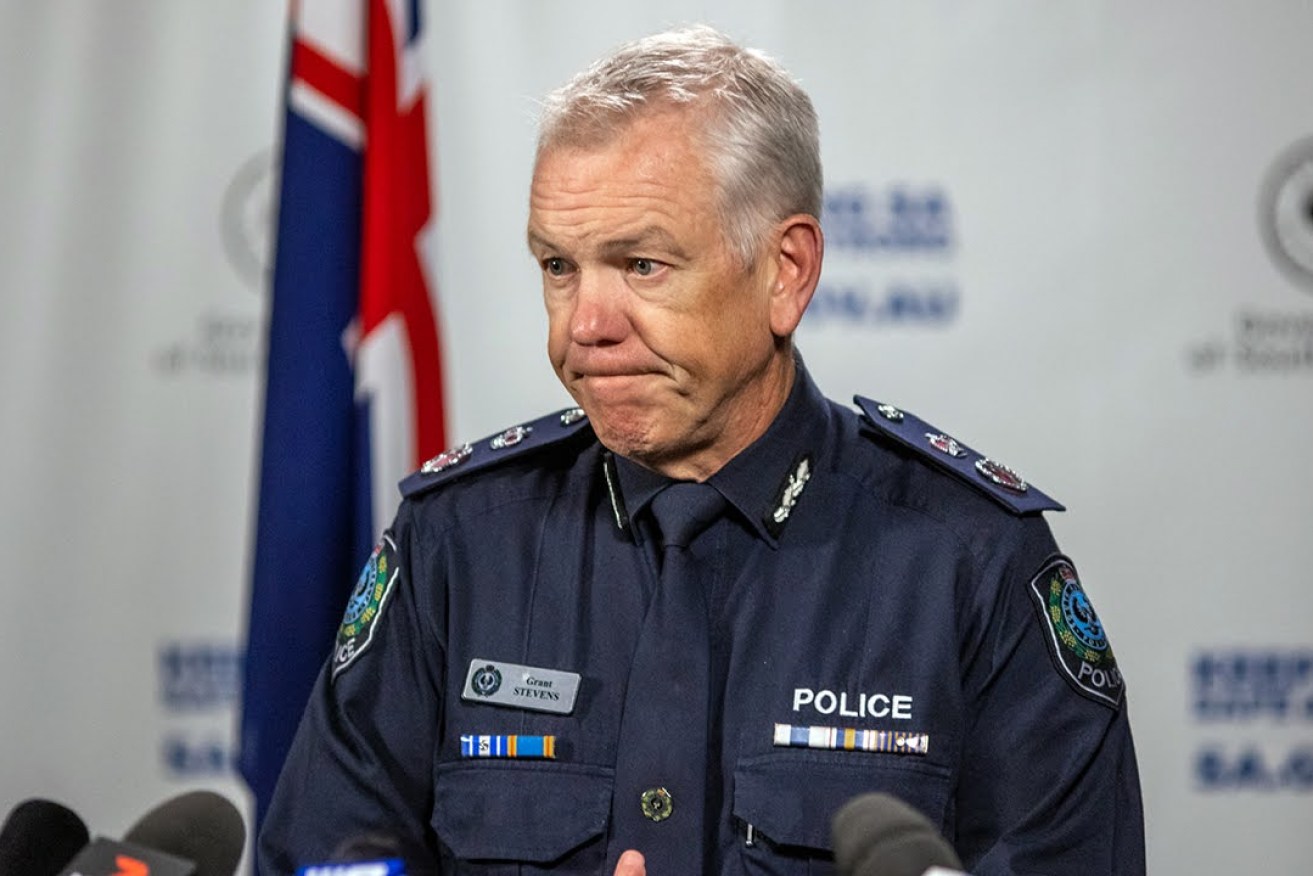SA emergency powers extended again as deadline looms
South Australia’s major emergency declaration for dealing with COVID-19 has now been extended until the end of May, but the state government says it “remains on track” to lift the provision before its June 30 deadline.

State coordinator Grant Stevens recommended the major emergency declaration be extended for a further 28 days. Photo: Tony Lewis/InDaily
It comes as the state today reported 3924 new COVID-19 cases and three deaths – a woman in her 80s, a man in his 50s and a man in his 80s.
Today’s daily caseload is a slight increase from yesterday, but the number of infectious people in hospital has dropped from 240 to 222.
Governor Frances Adamson yesterday approved extending the emergency management declaration for a further 28 days following a request by Police Commissioner and state emergency coordinator Grant Stevens.
The declaration, which grants Stevens sweeping powers to impose restrictions and vaccine mandates, was first made in March 2020 and has now been extended 28 times.
The repeated extensions have previously prompted backlash from some business leaders, who argue the declaration hands significant powers to an unelected public servant.
Premier Peter Malinauskas set a June 30 deadline to revoke the declaration, telling reporters last month that it was his “desire that it conclude even earlier than that” amid concerns the provision was only designed to be used for short emergency situations and not for a lengthy pandemic.
He said he had directed the Crown Solicitor’s Office to “immediately” consider what other legislation could be used to negate the need to further extend the emergency declaration.
“We’re going to do everything we can to make sure that happens as quickly as possible,” the premier said at the time.
But one month later, the government is yet to figure out how that could be achieved, with a police spokesperson telling InDaily this morning that SA Health was still working on “legislative options” with the Crown Solicitor’s Office.
“The necessity to maintain the major emergency declaration and the associated directions are subject to ongoing review,” the spokesperson said.
“Having assessed the prevailing circumstance, the state coordinator recommended a further extension of the major emergency declaration due to the necessity to safely manage transmission of the virus to limit the burden on the health system.”
A spokesperson for Malinauskas said the government “remains on track” to lift the emergency management declaration by June 30.
“The government is working with the state coordinator and chief public health officer regarding legislative requirements that need to be in place post the cessation of the emergency management declaration,” they said.
“The government is aiming to present any necessary legislation to parliament as soon as possible.”
Stevens has previously said that vaccine mandates issued under the declaration would become “void” once the provision is revoked and that government agencies including SA Health would have to find other legislative mechanisms to continue the requirements.
Amending the Public Health Act is one option the government is considering, although it is unclear what changes are proposed.
Meanwhile, quarantine rules for close contacts of positive COVID-19 cases will end at midnight tonight to bring South Australia into line with Victoria, New South Wales, the ACT and Queensland.
From tomorrow, close contacts of COVID-19 cases in SA will no longer need to isolate at home. They will instead have to take five rapid antigen tests over seven days and wear a mask when leaving the home.
Close contacts will also have to tell their employers they have been exposed to the virus and won’t be able to visit high-risk environments, such as hospitals and aged care homes.
The government will supply free rapid antigen tests to close contacts at various collection points, but those who develop symptoms are still required to get a PCR test and isolate until they return a negative result.




